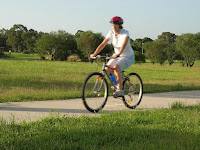Referenced From Dr. Oz: (November 2012) Warning Signs/Red Flags/Signs your Body is Aging too Fast
- If your eyes are red, it is a sign of inflammation. Therefore, this can be a sign that you have arthritis.
What is your Skin Color:
Red = Allergies, InflammationBlue = Not enough oxygen
Yellow = Liver Problems
Brown = Diabetes
Grey = Kidney Issues/Kidney Disease - Will not have as much blood in your body so your skin gets paler.
RED FLAGS/Warning Signs:
- Parkinson's Disease = Loss of Smell
- Vascular Problems = Hairless Ankles, Feet and/or Toes
- Lung cancer = Toes that bump upward at the tips - Sign your body may not be getting enough oxygen (toes that start to change, not ones that have been that way since birth).
- Memory Problems = Loss of Hearing
- ADHD (Deficit Hyperactivity Disorder) = Moody for no reason, Exhausted, Anxious, Daydreaming more than you should.

*Women symptoms are different than men:
Traits of ADHD in Women - Internal Disruption, genetic, often doesn't appear to later in life, struggle with relationships, keep trying to try to do everything and leaves you moody, anxious and exhausted until a major life change triggers:
- New Job = Higher level to attention to detail - unmasked
- Motherhood = Chores you have to do multiply, overwhelmed, (not pregnancy, after having baby).






















